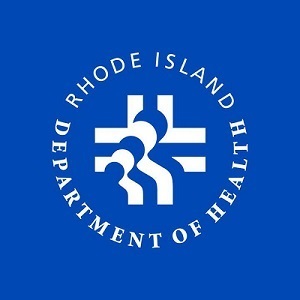
PROVIDENCE – The Centers for Disease Control and Prevention is awarding a five-year $4.4 million grant to the R.I. Department of Health as part of the State Physical Activity and Nutrition Program to improve physical activity, nutrition and well initiatives.
The federal grant is scheduled to be distributed in annual awards of $888,000 beginning this month. The funding may be used to support key components of the state health department’s 2023-2028 Rhode Island Healthy Eating and Active Living Strategic Plan, which is a statewide effort for physical activity and nutrition that aims to improve community health and decrease incidences of chronic diseases.
“All Rhode Islanders deserve to live long, healthy lives, and this federal funding will help ensure that residents across the state have access to healthy nutrition and physical activities,” said U.S. Rep. Seth Magaziner, D-R.I., in a joint statement with U.S. Sen. Jack Reed, D-R.I., and U.S. Sen. Sheldon Whitehouse, D-R.I.
The federal SPAN funds may be used to implement statewide and local initiatives and activities in several settings, including schools, child care facilities, senior centers, work sites, or other community places, according to a news release. The goal is to not only increase physical activity but also boost consumption of fruits and vegetables while decreasing consumption of sugar-sweetened drinks and the funds will help address health disparities related to poor nutrition, physical activity and obesity.
“Every Rhode Islander deserves access to affordable, healthy food and green spaces for recreation,” Whitehouse said. “This federal funding will promote nutrition and wellness initiatives and help reduce health disparities in communities across the Ocean State.”
Obesity is linked to several chronic diseases, including coronary heart disease, stroke, diabetes and some cancers. According to the National Institutes of Health, obesity is estimated to account for more than 20% of all annual health care expenditures in the United States.
Within Rhode Island, recent data from Trust for America’s Health shows that 30.8% of adults face obesity. But overall, obesity prevalence in Rhode Island has been slowly increasing, rising to 30% of the adult population in 2021 from 25% in 2011, according to the state’s HEAL Strategic Plan.
Trust for America’s Health data also shows 13.2% of children aged 10-17 in Rhode Island are obese. This rate increases to 1 in 4 for non-Hispanic Black and Hispanic children, according to HEAL. Household income also plays a role in obesity, as HEAL found that obesity was “significantly higher” within households with annual incomes of less than $25,000 at 35.6%, compared with 33.7% of those with an income between $25,000–$50,000 and 28.3% of people with an income above $50,000.
Physical activity and healthy eating are among the best ways health experts recommend reducing the risk of obesity and other chronic conditions such as heart disease and type 2 diabetes.
The state’s health department also plans to use the federal funds in partnership with local stakeholders to help make it easier for residents to eat well and move more. The funds can also assist in making neighborhoods more walkable and increasing opportunities for other physical activity by connecting pedestrian, bicycle, or transportation networks. The state’s Complete Streets policies may also be advanced with the goal of creating safe and convenient public transportation and walkable or bikeable communities, according to the release.
The CDC SPAN Program also helps infants and children with nutrition and wellness, including initiatives focused on breastfeeding continuity of care and community support, as well as helping child care providers incorporate active movement and healthy food options. The health department plans to use a portion of the federal funding to promote and support breastfeeding through working across state agencies to expand the lactation workforce, improve work site breastfeeding policy and increase enrollment in Women, Infants, & Children Nutrition Program breastfeeding education.
“Ultimately, the goal is to make it easier for everyone, regardless of their income, to lead a healthy, active lifestyle. So, we must continue working to expand access to affordable, healthy options when it comes to food and nutrition and increase opportunities for healthy recreation and physical activities,” said Reed, who is a senior member of the Senate Appropriations Committee. “This funding will help implement proven public health strategies, sustainable solutions and environmental changes that can help people get fit, stay healthy and prevent chronic diseases.”
Katie Castellani is a PBN staff writer. You may contact her at [email protected].
![]() Want to share this story? Click Here to purchase a link that allows anyone to read it on any device whether or not they are a subscriber.
Want to share this story? Click Here to purchase a link that allows anyone to read it on any device whether or not they are a subscriber.
